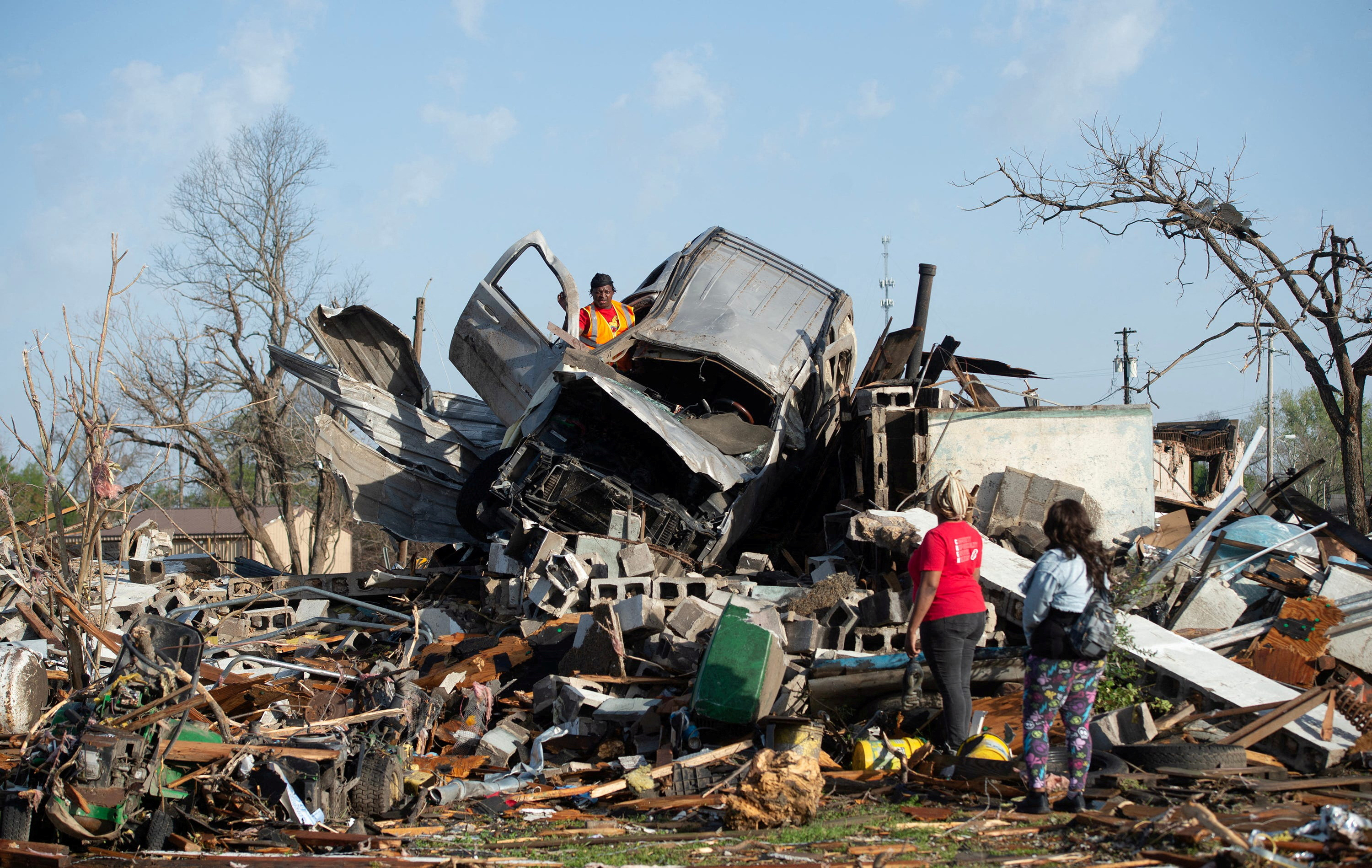
US President Joe Biden has approved an emergency declaration for Mississippi after a powerful storm tore across the state, killing at least 25 people there and one in Alabama.
Biden ordered federal aid to supplement state, tribal and local recovery efforts in the affected areas, a White House Statement said on Sunday. The funding will be available to affected people in the counties of Carroll, Humphreys, Monroe, and Sharkey, the statement said.
The powerful storm that spawned at least one tornado ripped across the US states of Mississippi and Alabama, tearing off roofs, smashing cars and levelling entire neighbourhoods.

Mississippi’s emergency management agency put the death toll at 25 on Saturday and said dozens more were injured. Four people reported missing “have been found”, it added.
And in Alabama, one man died after being trapped when a trailer overturned in the severe weather, the sheriff’s office in Morgan County said on Twitter.
The tornado stayed on the ground for about an hour and cut a path of destruction some 274km (170 miles) long across Mississippi late on Friday, according to Nicholas Price, a meteorologist with the National Weather Service in Jackson, Mississippi.
At least 12 of the deaths occurred in hard-hit Rolling Fork, a town of about 1,900 in western Mississippi. The town is 75 percent Black and approximately one-fifth of the population lives below the federal poverty line, according to United States Census data.
Homes in Rolling Fork were reduced to rubble, tree trunks snapped like twigs and cars were tossed aside like toys. The town’s water tower lay twisted on the ground.
“My city is gone, but we are resilient,” its mayor, Eldridge Walker, told CNN earlier in the day. “We are going to come back strong.”
Michael Searcy, a storm chaser who saw the tornado approach Rolling Fork, spent hours helping rescue trapped people.
“As soon as we would go from one vehicle to the next vehicle or from building to building, we could hear screams and we could hear cries for help,” he told the Reuters news agency.
“And we were just basically in small groups, digging through the rubble, trying to find and extricate people.”
Members of one family narrowly escaped by taking shelter in a bathroom; the rest of the house collapsed around them, and the high winds dropped a van on top of the home, Searcy said.
In nearby Silver City, a rural community of about 300, residents described locking themselves in interior rooms and cowering inside bathtubs as the tornado swept through.
Governor Tate Reeves, who visited Silver City on Saturday, declared a state of emergency in the affected areas.
“The scale of the damage and loss is evident everywhere affected today,” he wrote on Twitter. “Homes, businesses…entire communities.”
US President Joe Biden described the images from Mississippi as “heartbreaking” and said in a statement that he had spoken with Reeves and offered his condolences and full federal support for the recovery.
“To those impacted by these devastating storms, and to the first responders and emergency personnel working to help their fellow Americans, we will do everything we can to help,” Biden said.
“We will be there as long as it takes. We will work together to deliver the support you need to recover.”
Mississippi officials set up three emergency shelters, including at the National Guard Armory in Rolling Fork. Federal Emergency Management Agency Director Deanne Criswell will travel to Mississippi on Sunday, the White House said.
Mississippi was girding for more turbulent weather Sunday, including damaging winds and hail, with the emergency management agency warning that “tornadoes cannot be ruled out.”
Despite the fears of more storms, Mississippi started clean-up operations, as rescue workers surveyed the damage with roofs blown away, buildings flattened and cars smashed together amid piles of debris.
Electricity repairs were underway to restore power to the more than 6,000 customers still in the dark in Mississippi, along with nearly 10,000 in Alabama, monitor poweroutage.us reported.
Volunteers poured in from surrounding towns, including Lauren Hoda, who traveled 70 miles from Vicksburg to help.
“When I woke up this morning, I wanted to cry for the people of this town because I don’t think they had much time before (the tornado) came,” she said.







